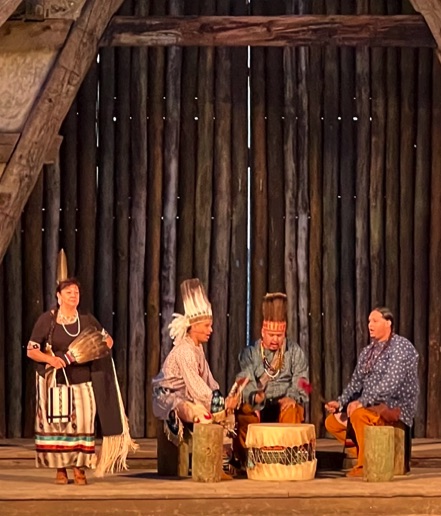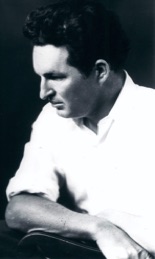Green's best known achievements include his 1927 Pulitzer Prize for Drama for the play, In Abraham's Bosom, his collaboration with composer Kurt Weill on the World War I musical satire Johnny Johnson, and his adaptation of Richard Wright's novel, Native Son, for the Broadway stage.
After writing stints on Broadway and in Hollywood, Green invented a new genre for the stage--the outdoor symphonic drama. His 1937 play, The Lost Colony, is still produced annually on the coast of North Carolina.
Equal to h literary impact has been his influence on human rights in the South and internationally. The Paul Green Foundation was established in 1982 to perpetuate the vision of the playwright and activist in promoting racial equity, social justice, and the abolition of the death penalty. Paul Green's commitment to the arts and human rights continues through the mission of the Foundation.
Recognition for Green's playwriting talent came early. In 1927, he won the Pulitzer Prize for Drama for In Abraham's Bosom. The play dealt with the then-taboo topic of interracial intimacy and was never performed below the Mason-Dixon line.
In the 1930s, Green collaborated with composer Kurt Weill to create the satirical musical Johnny Johnson, based, in part, upon Green's experience in the trenches of France during World War I. This anti-war play still speaks to contemporary audiences.
Green was also selected by Richard Wright to adapt Wright's novel, Native Son, for the Broadway stage in 1941.
After writing stints in New York and Hollywood, Green came home to create a new theatrical form which he called "the symphonic outdoor drama." His first and longest running play in this genre is The Lost Colony, presented annually on the coast of North Carolina for more than 85 years.
Equal to his literary influence has been Green's impact as a passionate advocate for social justice, prison reform, and the abolition of the death penalty. Green regularly lobbied government leaders about the racial injustices he witnessed over his lifetime. He also led vigils at North Carolina's Central Prison when executions were being conducted by the state.
The Paul Green Foundation was established in 1982 to perpetuate his work and vision through a program of grantmaking in the arts and human rights.

Indigenous performers from multiple tribes are now cast in Paul Green's drama "The Lost Colony," presented on Roanoke Island at the historical site on which the drama is based. Photo by Donna Campbell.
MISSION
The Paul Green Foundation exists to advance the ideals of human rights to which
Paul Green was committed; to own, preserve, and promote his literary works; and to encourage dramatic art with special emphasis on symphonic outdoor drama. The Foundation makes modest arts and human rights grants and awards to nonprofit organizations.
